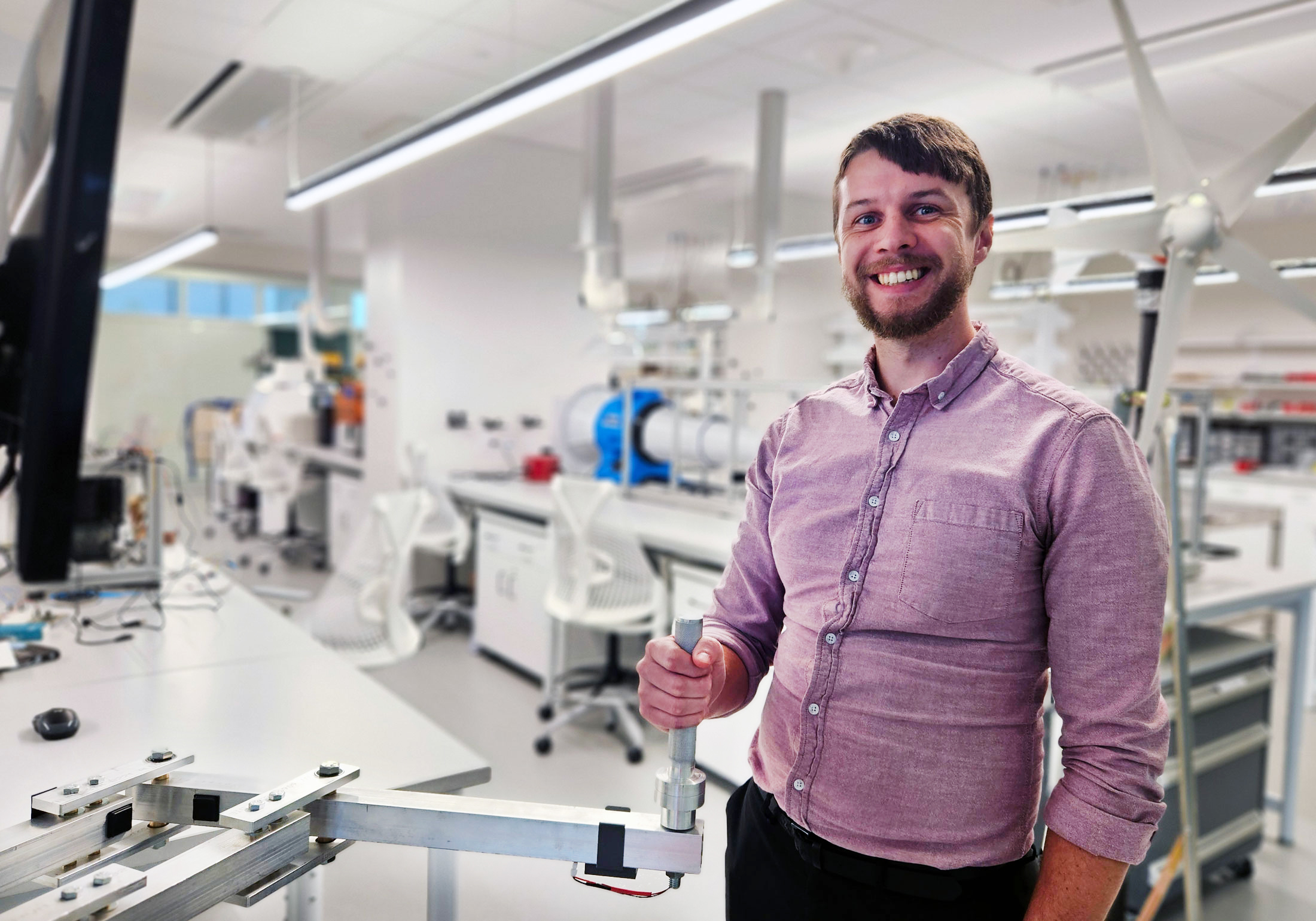
Dr. Chris Kelley, assistant professor of mechanical engineering at Florida Polytechnic University, has received a $200,000 grant from the National Science Foundation to research control theory and Parkinson’s disease. He demonstrates the robotic arm that will help test patient volunteers’ reaching abilities as part of the research.
The diagnosis of Parkinson’s disease could become more definitive and measurable thanks to cutting-edge research being developed at Florida Polytechnic University.
Dr. Chris Kelley, assistant professor of mechanical engineering, has received a $200,000 National Science Foundation Grant to apply control theory to improve the understanding of movement dysfunction in Parkinson’s disease. The progressive brain disorder causes unintended, uncontrollable movements like shaking, and affects balance and coordination.
Control theory analyzes how to influence a system’s behavior to achieve a goal and improve the accuracy, reliability, and stability of the system. For example, control theory determines what electrical signals to send to a motor to move a robotic arm. For human movement, Kelley said, the brain decides what signals to send to muscles to accomplish a task.
Kelley said Parkinson’s patients have two main sets of symptoms: tremor and movement inhibition or slowness of movement.
“We’re trying to capture whether both sets of symptoms are coming from the same overall source of dysfunction with a goal of improving the understanding of what’s going wrong and being able to apply that to improve diagnosis and treatment,” Kelley said.
The research will use modeling and simulation as well as robotic-based movement studies. He said previous research has shown that different parts of the brain play certain roles that relate to those of a robotics control system, such as the basal ganglia being involved in how fast a person should move and which tasks should be executed.
“We’re mapping where in the feedback loop the dysfunction is and what role it plays, and then we’re producing low-order models and simulating those with tools like MATLAB to see if we can produce simulation results that match movement recordings in the literature,” Kelley said. “On the other side, we have a robotic device that can measure and manipulate human reaching.”
Kelley and his two student research assistants will then design a task to show clear differences between the reach of those with and without Parkinson’s disease. He said it would be the first step toward a clinical validation of the models being created.
“Parkinson’s disease is definitely not clear, and it’s misdiagnosed a lot because there’s some overlap with other diseases and movement disorders, and the diagnosis involves physicians qualitatively saying a person has rest tremor and rigidity, so they have Parkinson’s,” Kelley said. “Since it’s not as quantitative there’s no real objective test to help inform that and this could be a start – if we can even just give another tool to help inform the diagnosis, that could be really useful.”
Ultimately, the results of this two-year research effort could be applied to future Parkinson’s disease diagnosis methods, treatments, and rehabilitation plans, he said.
Kelley’s NSF award both celebrates the professor’s persistent hard work and further recognizes the University’s growing research strength, said Dr. Terry Parker, Florida Poly’s provost.
“Dr. Kelley is an exceptionally talented professor whose research and instructional style inspire and engage students,” Parker said. “This NSF grant is very much deserved and Florida Poly is proud of his achievements and his bright future that lies ahead.”
Contact:
Lydia Guzmán
Director of Communications
863-874-8557